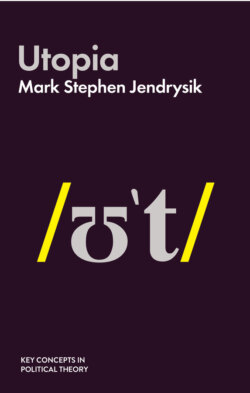Читать книгу Utopia - Mark Stephen Jendrysik - Страница 13
Are Utopia and Utopian Political Thought Western Manifestations?
ОглавлениеKumar emphatically states that “the modern utopia – the modern western utopia invented in the Europe of the Renaissance – is the only utopia” (1987: 3). Sargent disagrees and claims that utopianism, defined as social dreaming, is a universal human phenomenon (1994: 19). Dreams of an earthly paradise, of places of plenty and of justice, appear across all cultures. A crucial difference between Western and non-Western visions of utopia, Sargent suggests, lies in the fact that non-Christian traditions lack the fundamental break represented by the Fall in the Garden of Eden and the idea that the Fall taints all humanity with original sin (2010: 68). In many ways, the debate over whether or not utopia and utopian political thought are products solely of the West turns on how one defines a set of terms. But what Sargent called “social dreaming,” the “desire for a better way of being in the world,” is universal (Dutton 2010: 250).
Recognizably utopian ideas can be seen in various forms of Chinese thought that stress the creation of harmonious societies. They can also be seen in anti-colonial liberation movements, particularly those of Gandhi in India, and in many African independence struggles, that sought new forms of social, economic and political life uninfluenced by the colonizing power. Some of these movements might be understood as retrotopian, since many of them stressed the restoration of a time before European imperialism disrupted traditional indigenous ways of life.
In this book I focus on Western thought about utopia. I do so for several reasons, the quality and persuasiveness of which the reader is free to judge for herself. First, the main development of utopian political thought has been in those places commonly identified with “the West.” If students want to develop an understanding of the main tendencies of this tradition of inquiry and activism, they will need to examine its key exponents, from Plato to More to the present. Second, while utopian aspirations are universal, the systematic articulation of utopian political thought begins with Western sources. Third, I expect that the students who use this book will be concentrated mainly in the English-speaking world. An understanding of the ideas that are foundational to one’s own context is absolutely necessary before trying to grasp the beliefs and dreams of people from other cultures. This statement should not be taken to mean that a student will judge other traditions solely in light of their own. It should be taken to mean that students will be better able to develop necessary critical tools and methods in an idiom that is familiar to them. They will then be able to move on to the much more challenging task of understanding ideas outside their own cultural context.
